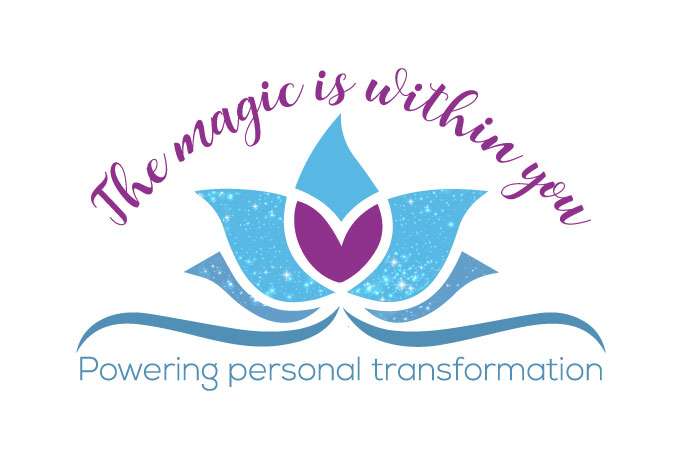I have been having more and more conversations recently about the impact that one person’s approach to and behaviour within an organisation can have on a team or workplace so I thought I’d title my blog this month:
“Understanding Dark Personalities in the Workplace and Their Impact”
In every workplace, you’ll encounter a range of personalities. While some are collaborative, empathetic, and team-oriented, others display traits that can significantly disrupt the office environment. These disruptive traits often align with what psychologists refer to as the “dark triad” of personality: narcissism, Machiavellianism, and psychopathy. People with these traits can create toxic work environments, erode team morale, and cause lasting damage to organisational culture.
In this blog, we will explore what these dark personalities are, how they manifest in the workplace, and the profound impact they can have on both individuals and the organisation.
The Dark Triad of Personalities: What Are They?
The term “dark triad” refers to three specific, potentially harmful personality traits:
Narcissism: People high in narcissism have an inflated sense of self-importance and a deep need for admiration. They often lack empathy and may exploit others to achieve their goals. In the workplace, narcissists might take credit for others’ work or seek constant validation from colleagues and superiors, creating an unbalanced and self-serving dynamic.
Machiavellianism: Named after the political philosopher Niccolò Machiavelli, this personality trait involves a strategic, manipulative approach to achieving goals. Machiavellians are master manipulators, willing to deceive, exploit, and manipulate others to get ahead. In the workplace, they might engage in backstabbing, lying, or unethical behaviours to gain power or climb the corporate ladder.
Psychopathy: While less common, psychopathy in the workplace can be highly destructive. Psychopaths are characterized by a lack of empathy, impulsive behaviour, and a willingness to harm others for personal gain. They are often charming on the surface but ruthless and callous when it comes to decision-making. Psychopaths in leadership positions can create environments where unethical behaviour thrives.
How Dark Personalities Manifest in the Workplace
Dark personalities may not always be obvious at first, as many people with these traits can be charismatic, charming, and seemingly competent. However, over time, their true nature becomes apparent through specific behaviours and patterns. Here’s how each personality type might show up in the office:
Narcissists- might constantly seek recognition and take on high-visibility projects but rarely give credit to team members. They may also react aggressively to criticism and manipulate others to maintain their image of superiority.
Machiavellians- tend to be schemers. They could create cliques, stir office politics, and sabotage colleagues by withholding information or spreading rumours. Their focus is primarily on personal gain, and they are likely to undermine others to succeed.
Psychopaths- are more likely to use aggressive, intimidating, or even unethical tactics. They may engage in bullying, make decisions that harm the company for short-term personal gain, or create a hostile work environment through manipulative or abusive leadership.
The Impact of Dark Personalities on Teams and Organisations
The presence of dark personalities in the workplace can have serious, long-lasting effects on both individual employees and the organisation as a whole.
Employee Morale and Mental Health – One of the most immediate impacts is on employee morale. Working alongside narcissists, Machiavellians, or psychopaths can lead to a toxic atmosphere where employees feel constantly undermined, undervalued, or manipulated. This can result in:
Increased stress and anxiety: Employees may dread coming to work or feel insecure about their job stability.
Decreased job satisfaction: A lack of recognition, manipulative colleagues, or unethical behaviour can make work feel meaningless and draining.
Higher turnover rates: Employees are more likely to leave toxic workplaces, causing a loss of valuable talent.
Productivity and Team Dynamics
When dark personalities are part of a team, collaboration and productivity often suffer. These individuals may:
Cause conflict: Dark personalities can be divisive, creating rifts within teams, increasing office politics, and reducing collaboration.
Reduce trust: When manipulation, exploitation, or unethical behaviour occurs, trust breaks down, leading to a fractured team and reduced cooperation.
Undermine leadership: Narcissists and Machiavellians may challenge authority or subtly undermine leaders to gain power for themselves, causing instability and confusion in the workplace.
Organizational Reputation and Ethics
If dark personalities hold leadership positions, they can significantly harm the organisation’s reputation and ethical standards. This can lead to:
Ethical compromises: Psychopaths, in particular, may encourage unethical practices, such as fraud, discrimination, or exploitation, to achieve business goals. This can result in legal issues and damage to the company’s public image.
Toxic culture: A workplace influenced by dark personalities may develop a culture where cutthroat behaviour is rewarded, leading to widespread dissatisfaction and high turnover rates.
Decreased innovation: When employees are stressed or worried about office politics, they are less likely to take creative risks or suggest new ideas, stifling innovation.
How to Mitigate the Effects of Dark Personalities
While it may be impossible to eliminate dark personalities completely from the workplace, there are ways to minimize their negative impact.
Implement Strong Leadership and Clear Policies
Leaders play a crucial role in managing dark personalities. Strong, ethical leadership can help create a culture of accountability and transparency. Implementing policies that reward collaboration and penalize manipulative or unethical behaviour can deter dark personality traits from thriving.
Provide Support for Employees
It’s important for organizations to provide support for employees who may be affected by dark personalities. This can include access to counselling services, clear reporting channels for unethical behaviour, and training on conflict resolution and emotional intelligence.
Careful Recruitment and Assessment
Organizations can also be proactive by carefully screening candidates for personality traits during the hiring process. Psychological assessments and thorough reference checks can help identify potential red flags, preventing the introduction of toxic personalities into the workplace.
Conclusion
Dark personalities in the workplace can have far-reaching consequences, from undermining team morale to damaging the ethical foundation of an organization. By understanding the traits of narcissism, Machiavellianism, and psychopathy, and being vigilant in addressing their behaviours, leaders can foster a healthier, more productive workplace. Effective management, clear policies, and a culture of transparency are key to mitigating the impact of these toxic traits and promoting a positive organizational environment.
The first step in combating this issue is awareness. Recognising the presence of dark personalities in your workplace is crucial to protecting both individuals and the overall success of the organisation.
If you are interested to learn more about what we can offer either here in the centre or in your workplace, please feel free to reach out.



